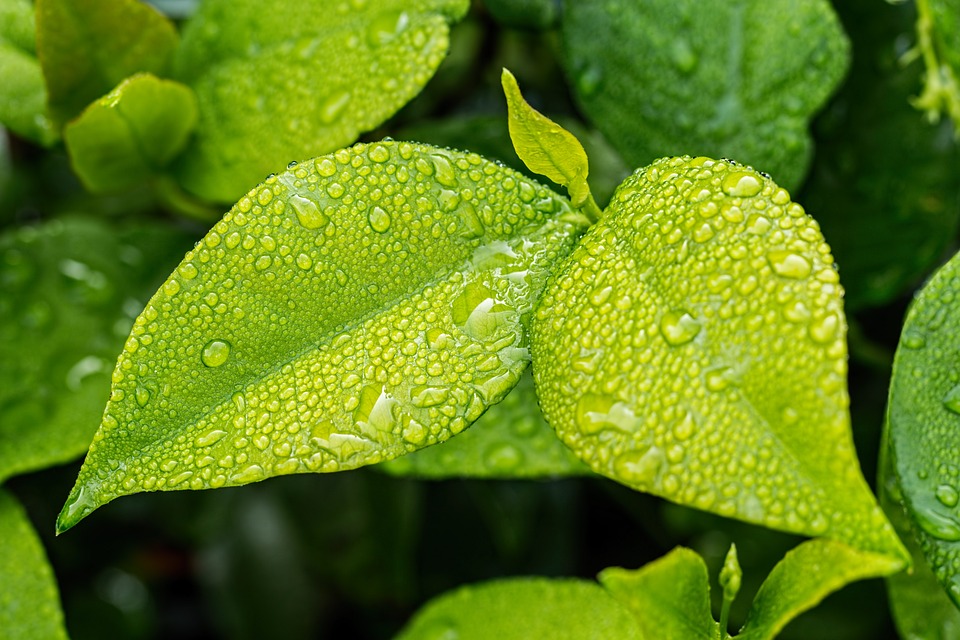Introduction
Home hydroponic gardening is a fascinating and rewarding hobby that allows you to cultivate plants without soil.
Instead of relying on traditional gardening methods, such as planting in the ground or using pots filled with soil, hydroponic gardening utilizes water-based nutrient solutions and various growing mediums to support plant growth.
This innovative approach has gained popularity in recent years as more people discover the joy and benefits of cultivating their own fresh produce indoors.
In this article, we will explore the world of hydroponic gardening and learn why it can be a thrilling experience for enthusiasts of all levels.
The Advantages of Home Hydroponic Gardening
One of the main advantages of home hydroponic gardening is the ability to grow plants year-round, regardless of the weather or season.
With controlled indoor environments, you can provide optimal conditions for your plants, ensuring they receive the right amount of light, water, and nutrients.
This also allows you to extend the growing season, giving you a continuous supply of fresh vegetables, herbs, and even flowers.
Another benefit of hydroponic gardening is its space efficiency.
Unlike traditional gardening that requires large areas of land or ample garden space, hydroponic systems can be set up in small spaces, such as balconies, patios, or even indoors on countertops or shelves.
This makes it an ideal option for urban dwellers or those with limited outdoor areas.
Furthermore, hydroponic gardening promotes water conservation.
Traditional gardening methods often require large amounts of water, with much of it being wasted due to evaporation or inefficient use.
Hydroponic systems, on the other hand, recirculate water, significantly reducing water consumption and minimizing environmental impact.
The Thrill of Cultivating Fresh Produce
One of the most exciting aspects of home hydroponic gardening is the ability to grow your own fresh produce.
Imagine plucking ripe tomatoes or crisp lettuce leaves straight from your indoor garden for a homemade salad.
The joy of watching your plants grow, from sprouting tiny seeds to mature crops, is incredibly satisfying.
By growing your own food, you have complete control over its quality and safety.
You can choose to grow organic produce, free from harmful pesticides or artificial fertilizers.
Plus, there is an immense sense of satisfaction in knowing that the food on your table was nurtured and harvested by your own hands.
Tackling Challenges and Learning Opportunities
Hydroponic gardening presents its fair share of challenges, which can make the experience even more thrilling.
From troubleshooting nutrient imbalances to preventing pests or diseases, each hurdle becomes an opportunity for learning and improvement.
As you tackle these challenges and find solutions, your skills as a hydroponic gardener will grow, and you will feel empowered by your ability to overcome obstacles.
Additionally, experimenting with different plant varieties and hydroponic techniques adds a sense of adventure to your gardening journey.
You can explore unique cultivars, exotic herbs, or even dwarf fruit trees that are perfectly suited for indoor growing.
The possibilities are endless, and the thrill of discovery will keep you engaged and excited in your hydroponic garden.
FAQs
1. What plants can I grow in a hydroponic system?
Many plants can be successfully grown through hydroponics, including leafy greens like lettuce, spinach, and kale, herbs such as basil and mint, and even fruiting crops like tomatoes, peppers, and strawberries.
However, it’s important to research the specific requirements of each plant and choose varieties that are well-suited for hydroponic cultivation.
2. Do hydroponic systems require expensive equipment?
While there are advanced hydroponic systems available on the market, getting started with a basic setup doesn’t have to break the bank.
It is possible to create simple DIY systems using readily available materials, such as plastic containers, PVC pipes, or even repurposed items.
As your experience and interest in hydroponics grow, you may choose to invest in more sophisticated equipment, but it is not a requirement for beginner gardeners.
3. How do I ensure the proper nutrient balance in my hydroponic system?
Maintaining the correct nutrient balance is crucial for the success of your hydroponic garden.
Investing in a quality nutrient solution formulated specifically for hydroponic gardening is a good starting point.
You will need to monitor and adjust the nutrient solution regularly, following the guidelines provided by the manufacturer and observing the health and growth of your plants.
Conducting regular water tests will also help ensure your plants receive the optimal nutrient levels.
4. Can hydroponic gardening be done organically?
Yes, hydroponic gardening can be done organically.
While traditional organic gardening relies on organic matter in soil as a source of nutrients, hydroponic systems can use organic nutrient solutions or organic amendments added to a water-based system.
Furthermore, many organic pest control methods, such as beneficial insects or companion planting, can also be applied in hydroponic setups.
5. Are hydroponically grown plants as nutritious as their soil-grown counterparts?
Studies have shown that hydroponically grown plants can be just as nutritious, if not more so, than soil-grown plants.
The controlled environment in hydroponic systems allows plants to maximize their nutrient uptake, resulting in potentially higher nutrient content.
However, it is important to maintain a proper nutrient balance to ensure the plants receive all the necessary elements for optimal growth and nutrition.




